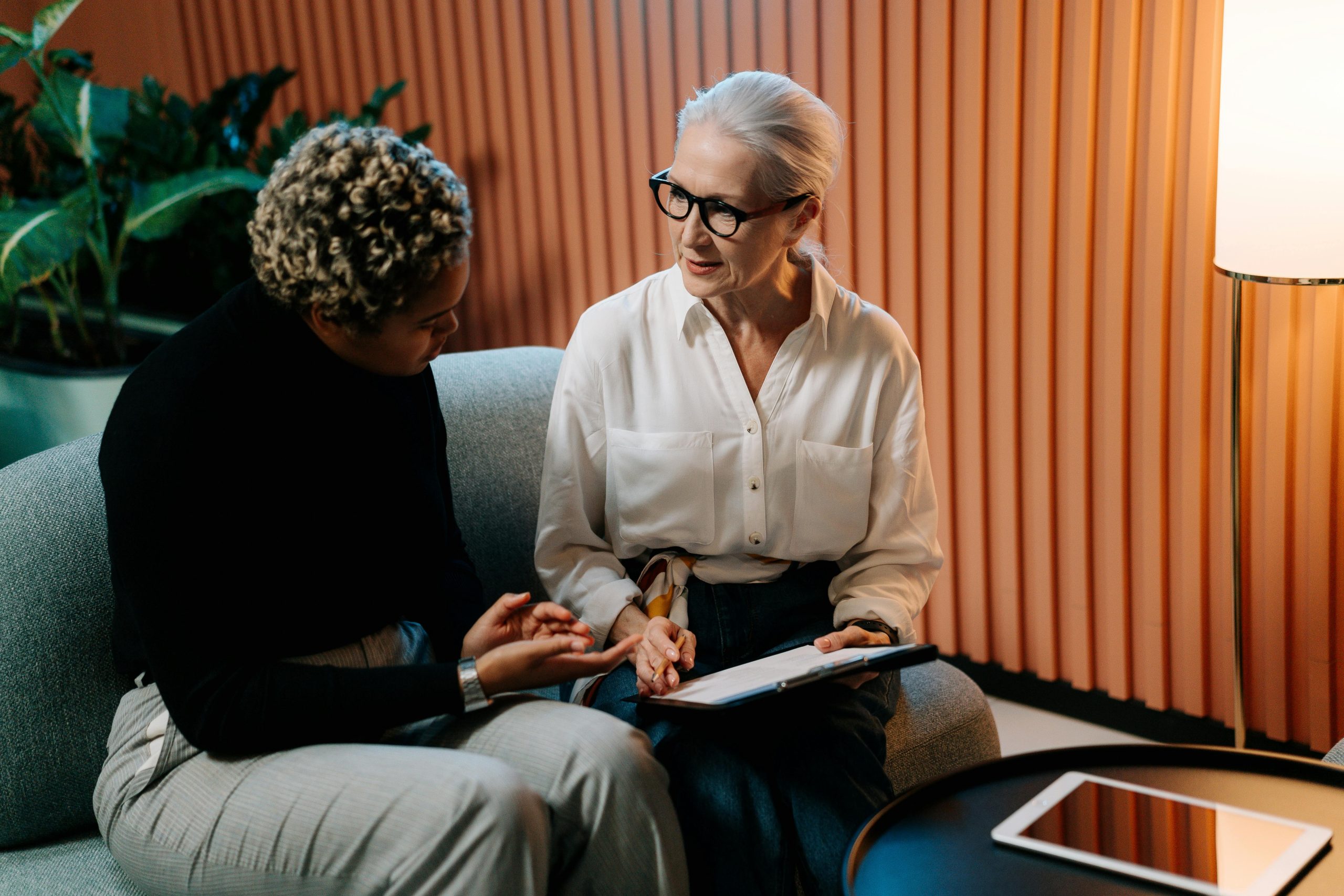From postcode lottery to award-nominated recovery

Burnetts Solicitors’ partner and brain injury lead Paul Brown is former secretary of UK Acquired Brain Injury Forum and current secretary of Northern Acquired Brain Injury Forum.
Here, Paul discusses how early access to specialist rehabilitation for people with ABI is essential to their recovery prospects but is currently dependent on a ‘postcode lottery’.
Paul provides an example of a case where collaboration and rehabilitation has led to outcomes so positive for the patient it was nominated for an award…
To put it bluntly, people with ABIs – and their families – do not have sufficient or equitable access to rehabilitation and support in the community and the national picture remains bleak. Early access to rehabilitation can be transformative.
When people with ABI don’t get early access to specialist rehabilitation services the recovery prospects for the patient are poor, their likelihood of returning to work is reduced, as is the chance for them to play an active role in society and there’s also a detrimental impact on the emotional wellbeing of the patient’s carers.
The long-term costs to the NHS are increased too.
Unfortunately, in the UK there’s currently something of a ‘postcode lottery’ with regards to accessing neurorehabilitation and support.
There’s a lack of consistent data which makes service planning very difficult, a constantly changing commissioning environment, a lack of training, education and awareness of brain injury in key professional groups and this all adds up to apply immense pressure on third sector organisations who provide support.
When broken down, the overall financial figures related to acquired brain injury are shocking but the positive effects of early access to rehabilitation are crystal clear.
The cost of acquired brain injury to the UK economy stands at £43 billion per year, wellbeing costs are estimated to amount to £91.5 billion, but there is a 16:1 return on investment in relation to rehabilitation – a saving of £680,000 per patient can be made with £43,000 of investment in rehabilitation.
There are around 350,000 admissions to hospitals in the UK of people with an acquired brain injury, and around 1.3m people live with the impact of brain injury.
Seven years ago, APPG and UKABIF published ‘Acquired Brain Injury and Neurorehabilitation: Time for Change’, a report which recommended “early access to specialist and/or community neurorehabilitation” as “critical components of the ABI care pathway”. In May 2025 they stated that:
“That need has still not been met across the UK.
“We need the Government to urgently address this.
“Giving patients a right to rehab delivers substantial economic and social returns. It reduces long-term healthcare costs, increases workforce participation, and alleviates pressure on social services.
“At the same time, it strengthens communities by enabling individuals with brain injuries to lead more fulfilling lives, contribute to society, and support their families.
“The ripple effect of these outcomes benefits everyone.”
I couldn’t agree or support this more.
In my experience, early access to rehabilitation for ABI patients is fundamental and I spend much of my working life striving to secure this for our clients.
I also strongly advocate for greater use of the Serious Injury Guide – a best practice guide designed to assist with the conduct of personal injury cases involving complex injuries.
A case that clearly comes to mind for me as an example of how early access to rehabilitation combined with great collaboration across a patient’s treatment team (to such an extent that it was nominated for an NR Times Award), was for my client, ‘Miss S’.
In 2021 Miss S was a passenger on a motorbike that was involved in a collision with another vehicle, resulting in her sustaining a traumatic brain injury.
Following management of her acute injuries, Miss S remained in hospital from the date of her injury until she was transferred for a period of NHS Neurorehabilitation where we remained as an inpatient there for a period of three months before she was admitted to Kibblesworth Neurological Rehabilitation Centre for a period of community rehabilitation.
On admission to Kibblesworth, Miss S presented as very anxious and physically dependent for all of her personal care requirements.
She was intolerant of any manual handling, becoming agitated and verbally aggressive when staff attempted to engage her in these activities.
Due to her poor vision, altered proprioception and anxiety, Miss S was unable to engage in activities in her bed without continual physical and emotional reassurance.
She did not tolerate hoisting and was unable to tolerate time sitting out in her wheelchair.
When personal care was carried out, staff had to be slow and reassuring and provide lots of closed chain support.
She required full support for rolling, moving her limbs and for all activities of daily living.
Over the course of 24 months, her support team worked with Miss S on interventions including graded exposure to hoisting, graded tasks in bed, stretches and splinting being undertaken regularly to increase and maintain her range of movement and use of a Syrebo robotic hand for managing continuous passive movements without need for physical handling.
Interventions also included weekly hydrotherapy sessions to practice more complex movements and strengthening work, a vehicle being obtained to provide transport to hydrotherapy and to community outings, Botulinum Toxin injections and surgery for management of ankle range of movement to increase standing and stepping potential, community access work to increase communication in social situations and confidence in interacting with new people, increasing leisure activities and working to explore future accommodation options.
Since her admission in October 2022, Miss S has made significant progress in all of her physical, cognitive and functional domains.
She has had involvement from Occupational Therapy, Physiotherapy, Clinical Neuropsychology, Clinical Psychology, Speech and Language Therapy and Case Management in addition to the care and support input from the team at Kibblesworth.
Her achievements include:
- tolerating hoist transfers with ease and without anxiety
- standing work and standing transfers
- walking 12 steps with the support of two therapists on land
- walking 40-50 steps in the hydrotherapy pool with the assistance of one therapist
- operating bed controls independently
- upper limb dressing and undressing independently
- rolling in bed independently
- a holiday at Centre Parcs with two support workers
- tolerating up to five hours in chair
- independent eating and drinking of “normal diet and fluids”
- independently operating a powered wheelchair for short distances
- increasingly self-advocating in health and wellbeing decisions and management of property and affairs and finances
- going to beauty salon for facial and nail treatments
- visiting her hairdresser
- going for a meal and ordering independently.
With input from Occupational Health, Case Management, her family, and me as her solicitor, Miss S has now purchased and moved into her own bungalow which is fully adapted to meet her physical needs.
She is working with her occupational therapist and her financial and legal team to recruit her own care team and she will be involved in interviewing for this.
As you can see, whether or not a patient has early access to the rehabilitation that they need and deserve can define their recovery and future standard of living.
We’ll continue to champion this, and to work hard to secure it for every one of our clients.
In the meantime, when it comes to patients that don’t have access to a legal claim, we would strongly support the recommendations to policymakers of the UK Acquired Brain Injury Forum and advocated by the All Party Parliamentary Group for Acquired Brain Injury as follows:-
- Introduce a Statutory Right to Rehab
Specialist neurorehabilitation services after ABI must be in place in every
community in the UK. They should co-ordinate the discharge from acute care
and support the patient’s ongoing recovery and return to work or education, if able.
- Establish a funding mechanism for community neurorehabilitation services
A model driven by savings in social services, acute care and benefits would
enable the Government to deliver on the pending NICE guidelines: Rehabilitation
for chronic neurological disorders including acquired brain injury.
- Establish a cross-Whitehall standing committee
A joint ministerial action plan for Acquired Brain Injury should be agreed and
reviewed every six months. The committee should hold local government and the
NHS to account in delivering community specialist neurorehabilitation services.
- Make better use of data analysis
Better data would support more effective neurorehabilitation commissioning to
help end the postcode lottery.
- Improve data collection in services that do not currently measure the
impact of ABI
Introduce systematic data collection in education, homelessness, addiction and
mental health care. Collecting information would enable costs to be apportioned
to ABI types for education, mental health and psychiatric care.
Learn more about Burnetts at burnetts.co.uk










